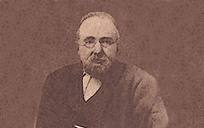Annotation:Dean Bridge of Edinburgh (The)
X:1 T:Dean Brig of Edinburgh, The M:C L:1/16 R:Strathspey C:Airchie Allan N:Mistakenly attributed to Peter Milne in Middleton's volume. Q:"Slowly" B:Middleton's Selection of Strathspeys, Reels, &c., for the Violin (1870, p. 34) Z:AK/Fiddler's Companion K:Eb G2|B3cBe3 BG3G3F|E3F EFGF EB3, B,4|(C3E)(B,3E) (A,3E) G,4| CF3~F3E DEFD B,3G|B3c Bcde BG3~G3F|E3F EFGF EB,3 ~B,4| (C3A)(B,3G) (A,3F)(G,3c)|B3cBD3 [G,4E4]-[G,2E2]||f2|ge3e3g fd3d3f| ec3c3=a bB3B3d|cA3A3c BG3G3=B|cF3F3E DEFD B,3F| GE3E3G FD3D3F|EC3C3=A|BB,3B,3E|(C3A)(B,3G) (A,3F)(G,3c)|B3cBD3 [G,4E4]-[G,2E2]|]
DEAN BRIG/BRIDGE O' EDINBURGH, THE. AKA and see "Miss Gray of Carse (2)/Corse." Scottish, Air or Slow Strathspey. E Flat Major. Standard tuning (fiddle). One part (Bain): AB (Hunter, Skinner). The Dean Bridge is a sandstone structure to the northwest of central Edinburgh some 447 feet in length, spanning a deep valley over the Water of Leith. It was opened in 1831 after being designed and built by Thomas Telford. The new bridge opened access to the north of the city, during the development of the New Town.
The composition is now usually credited to Airchie, or Archibald, Allan (1794–1831) of Forfar (who was thought to have been a fiddler in Nathaniel Gow's band for a time, and who, according to Alexander Lowson, played "neat and powerful especially in the Strathspeys"), although Mary Ann Alburger (1983), seemingly alone, believes he is unlikely to have written it—"Compilers at least from the time of Skinner (including Emmerson, 1971) have written that Allan originally published this as 'Miss Gray of Carse;' however, the tunes have nothing in common." Airchie Allan of ForFar was a cousin of the famous fiddler James Allan (1800–1877). Skinner (1904), Hunter (1988) and Hardie (1992) all agree that the tune was originally "Miss Gray of Carse," and say Peter Milne took it up, made it a specialty and played it into popularity under the present "Dean Brig" title. Honeyman (1898) identifies yet another source for the melody: "This lovely melody is given in some collections as a composition of Peter Milne's, but that is a mistake. It was written by the Rev. Mr. Tough, but improved by Milne, who raised the first half of the second part an octave higher, though by doing so it is make to challenge comparison with the second part of 'Lady Mary Ramsay,' which Mr. Tough seems to have wished to avoid. It must be played with long sweeping bows, and makes a capital solo, followed with 'Bank's Hornpipe,' and finishing with the 'Trumpet Hornpipe.'" The first ascription to the Rev. Tough of Kinnoul as composer of the tune was in Davie's Caledonian Repository, where it appeared first under the "Dean Brig" title. Köhlers’ Violin Repository Book 1 also credits Rev. Tough with the composition. J. Scott Skinner's (1904) note reads:

The original title of this tune was 'Miss Gray of Carse.' The Rev. Mr. Tough, Kinnoul, got hold of a copy and gave it to Davie of Aberdeen, who published it in his Caledonian Repository as Mr. Tough's under the new name of "Dean Bridge." The tune was ably revised by Peter Milne, and C. Middleton, Keith, in his book made the mistake of assigning it to him. Ultimately both the minister's name and Peter's were withdrawn, and the tune was credited to its rightful author, Archie Allan of Forfar, who was one of the very best players and composers of his day.
Source for notated version:
Printed sources:
Bain (50 Fiddle Solos), 1989; pg. 18.
Hardie (Caledonian Companion), 1992; p. 67 (with variations by J.F. Dickie).
Honeyman (Strathspey, Reel and Hornpipe Tutor), 1898; p. 35.
Hunter (Fiddle Music of Scotland), 1988; No. 181.
Köhler's Violin Repository, vol. 1, 1881–1885; p. 59.
Milne (Middleton's Selection of Strathspeys, Reels, &c. for the Violin), 1870; p. 34.
Skinner (The Scottish Violinist), 1900; p. 40.
Skinner (Harp and Claymore Collection), 1904; p. 20.
Recorded sources: Beltona Bel 2097 (78 RPM), George F. Davie (1834).
See also listings at:
Jane Keefer's Folk Music Index: An Index to Recorded Sources [1]
Alan Ng's Irishtune.info [2].

